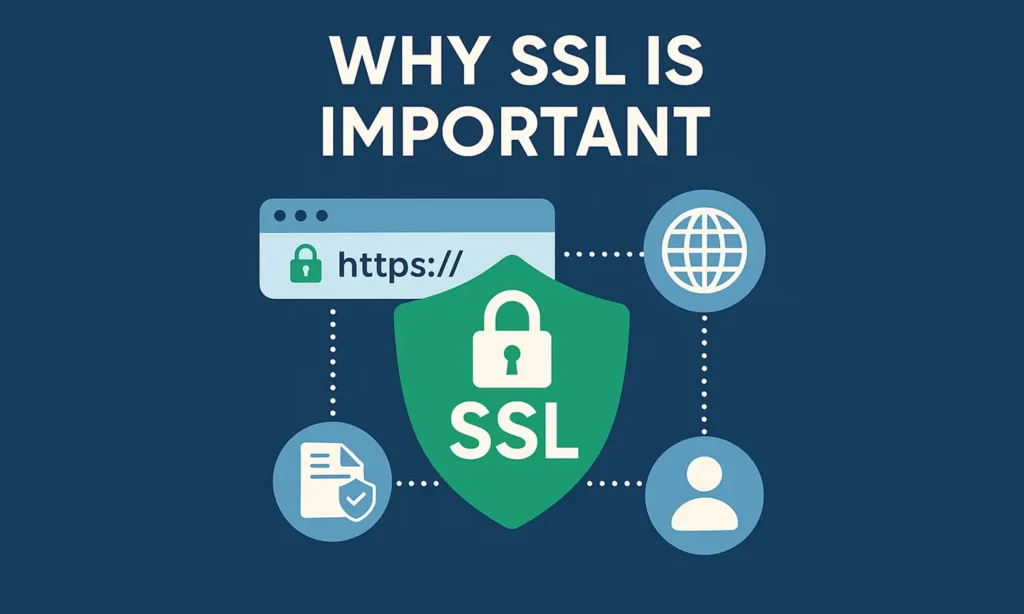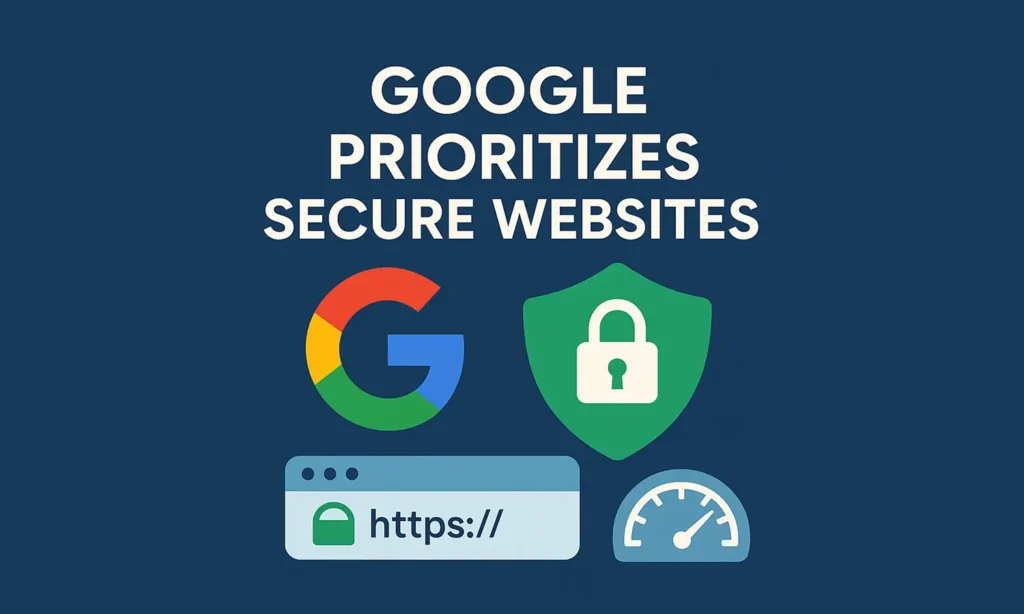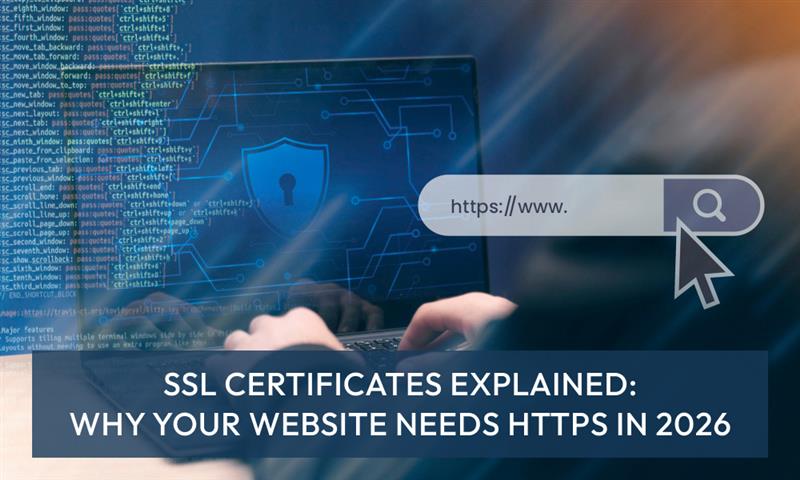In the digital age, securing your website with HTTPS has become an absolute necessity. Whether managing a small business, an e-commerce platform, or a professional portfolio, protecting visitors’ data and gaining their trust is crucial. This comprehensive guide explains what SSL certificates are, why HTTPS is essential in 2026, and how securing your site helps build credibility, improve SEO rankings, and protect customers.
What Is an SSL Certificate?

An SSL certificate (Secure Sockets Layer) is a digital certificate that encrypts the connection between a website’s server and a visitor’s browser. This encryption ensures that information such as passwords, payment details, or contact form entries transmitted between the user and your site remains private and secure. With SSL installed, your website’s URL changes from “http://” to “https://”, and a padlock icon appears in the browser’s address bar, signaling a secure connection.
Why HTTPS Is Essential for Every Website in 2026
Many believe HTTPS is only important for e-commerce or banking websites, but in 2026, every website benefits from HTTPS for several reasons:
1. Google Prioritizes Secure Websites

Since 2018, Google has favored HTTPS websites in its search rankings, and by 2026, HTTPS is a core ranking factor. Websites without HTTPS trigger “Not Secure” warnings in browsers, potentially deterring visitors before they even view your content. To remain competitive, securing your site with SSL is no longer optional—it’s required.
2. Builds Trust and Credibility with Visitors
Visitors are increasingly cautious about security online. Seeing a padlock icon and HTTPS prefix reassures users that your site is safe to browse and transact on. Without these, users are less likely to trust your brand, risking lost customers from the outset.
3. Protects Sensitive Information

SSL’s primary role is encrypting data to safeguard it from hackers. Visitor info, such as login credentials or credit card details, is scrambled during transmission to protect against cyber threats like phishing or man-in-the-middle attacks.
4. Enhances Website Speed and Performance
Modern SSL certificates use advanced encryption protocols like TLS 1.3 and HTTP/2 support, which can actually improve website loading speeds. Faster sites boost user experience and are favored by Google’s search algorithms. You can check your website’s speed and performance anytime using Google PageSpeed Insights.
5. Enables Secure Online Payments
For online stores, SSL is mandatory. Payment processors like Stripe, PayPal, and Shopify require SSL to securely process transactions. Without HTTPS, your store can’t meet PCI compliance requirements, restricting payment processing capabilities.
How SSL Certificates Work in Simple Terms
When a visitor accesses your site:
- Handshake: The visitor’s browser checks your SSL certificate to confirm your website’s legitimacy.
- Encryption: Verified, the SSL encrypts all data exchanged between the user and your server.
- Decryption: Your server safely decrypts this data, maintaining privacy and integrity.
This exchange occurs instantly, protecting communications from cyber attackers.
Types of SSL Certificates
Selecting the right SSL certificate depends on your site’s needs:
- Domain Validation (DV) SSL: Best for personal blogs; quick to issue and budget-friendly.
- Organization Validation (OV) SSL: Verifies business identity, ideal for small to medium enterprises.
- Extended Validation (EV) SSL: Provides the highest trust level with a green address bar, suited for e-commerce and financial sites.
- Wildcard SSL: Secures a domain and unlimited subdomains; perfect for expanding businesses.
- Multi-Domain (SAN) SSL: Protects multiple domains under one certificate.
How HTTPS Affects SEO and Business Growth
Beyond security, SSL boosts your digital presence:
- Higher Google Rankings: Secure sites enjoy better SEO positioning.
- Lower Bounce Rates: Visitors trust your site and stay longer.
- Increased Conversions: Trust from HTTPS leads to more form fills, sign-ups, and sales.
- Better Analytics: HTTPS prevents loss of referral data, improving traffic insights.
Common Myths About SSL (Busted)
- SSL is only for e-commerce: All sites collecting data benefit from SSL.
- HTTPS slows websites down: Modern encryption protocols actually enhance speed.
- SSL is costly: Many hosting providers offer free SSL certificates such as Let’s Encrypt.
- Installation is complicated: Expert developers or agencies can make setup seamless.
Steps to Get an SSL Certificate
Securing your site is simpler than it seems:
- Choose the correct SSL certificate type for your site.
- Purchase or acquire a free SSL certificate from trusted providers.
- Install the certificate on your server.
- Update your website URLs to HTTPS.
- Redirect all HTTP requests to HTTPS versions.
Website security is fundamental to online success in 2026. Failing to switch to HTTPS risks lost traffic, lower rankings, damaged reputation, and missed sales opportunities.
For businesses looking to secure their websites efficiently and optimize for SEO and performance, professional services like Hatch2Web provide expert SSL installation and configuration support, helping to build a secure, trusted, and future-ready web presence.
In conclusion, upgrading your website to HTTPS with an SSL certificate is a crucial investment for protection, credibility, and growth in 2026.




